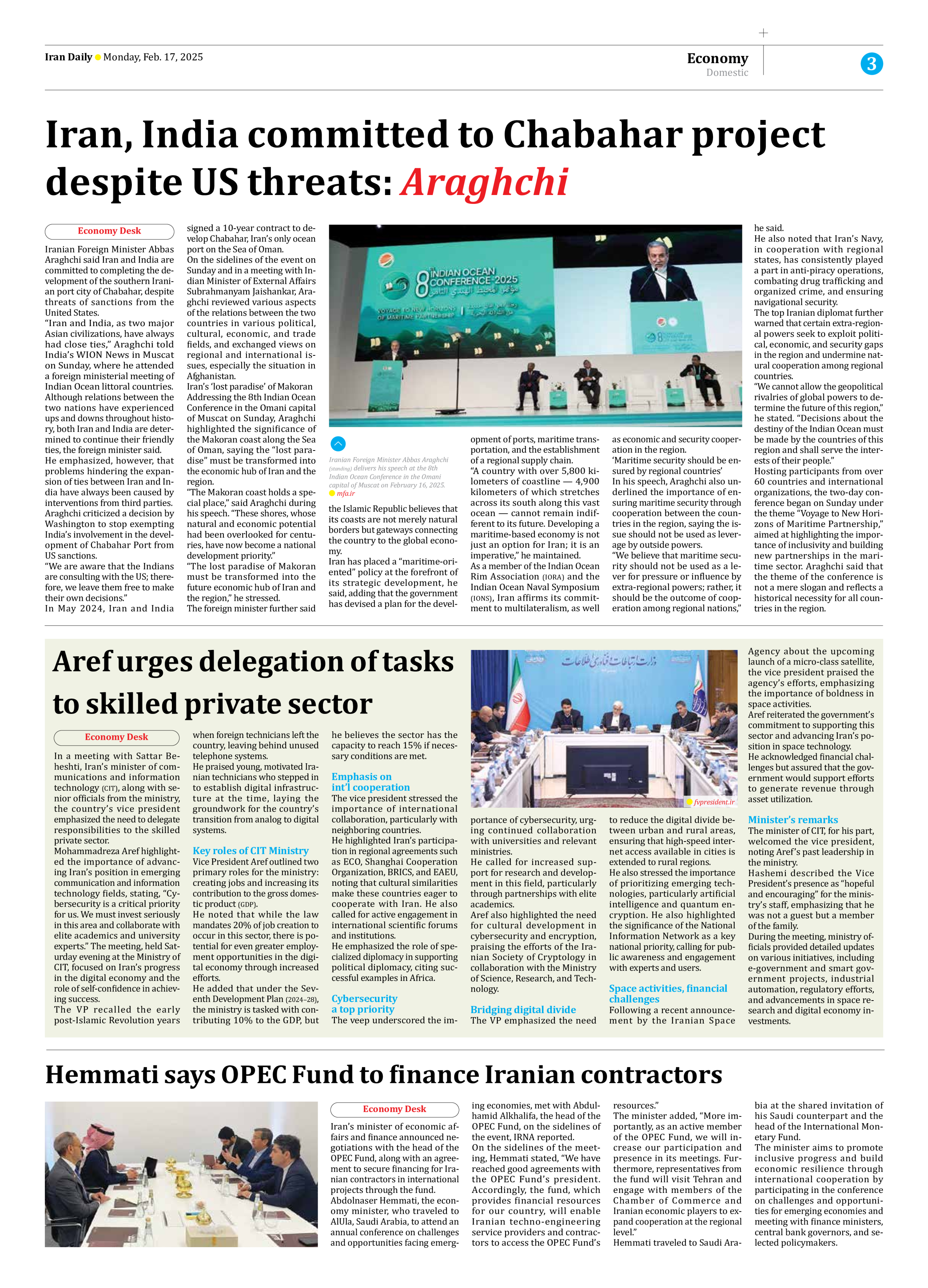
Aref urges delegation of tasks to skilled private sector
In a meeting with Sattar Beheshti, Iran’s minister of communications and information technology (CIT), along with senior officials from the ministry, the country’s vice president emphasized the need to delegate responsibilities to the skilled private sector.
Mohammadreza Aref highlighted the importance of advancing Iran’s position in emerging communication and information technology fields, stating, “Cybersecurity is a critical priority for us. We must invest seriously in this area and collaborate with elite academics and university experts.” The meeting, held Saturday evening at the Ministry of CIT, focused on Iran’s progress in the digital economy and the role of self-confidence in achieving success.
The VP recalled the early post-Islamic Revolution years when foreign technicians left the country, leaving behind unused telephone systems.
He praised young, motivated Iranian technicians who stepped in to establish digital infrastructure at the time, laying the groundwork for the country’s transition from analog to digital systems.
Key roles of CIT Ministry
Vice President Aref outlined two primary roles for the ministry: creating jobs and increasing its contribution to the gross domestic product (GDP).
He noted that while the law mandates 20% of job creation to occur in this sector, there is potential for even greater employment opportunities in the digital economy through increased efforts.
He added that under the Seventh Development Plan (2024–28), the ministry is tasked with contributing 10% to the GDP, but he believes the sector has the capacity to reach 15% if necessary conditions are met.
Emphasis on
int’l cooperation
The vice president stressed the importance of international collaboration, particularly with neighboring countries.
He highlighted Iran’s participation in regional agreements such as ECO, Shanghai Cooperation Organization, BRICS, and EAEU, noting that cultural similarities make these countries eager to cooperate with Iran. He also called for active engagement in international scientific forums and institutions.
He emphasized the role of specialized diplomacy in supporting political diplomacy, citing successful examples in Africa.
Cybersecurity
a top priority
The veep underscored the importance of cybersecurity, urging continued collaboration with universities and relevant ministries.
He called for increased support for research and development in this field, particularly through partnerships with elite academics.
Aref also highlighted the need for cultural development in cybersecurity and encryption, praising the efforts of the Iranian Society of Cryptology in collaboration with the Ministry of Science, Research, and Technology.
Bridging digital divide
The VP emphasized the need to reduce the digital divide between urban and rural areas, ensuring that high-speed internet access available in cities is extended to rural regions.
He also stressed the importance of prioritizing emerging technologies, particularly artificial intelligence and quantum encryption. He also highlighted the significance of the National Information Network as a key national priority, calling for public awareness and engagement with experts and users.
Space activities, financial challenges
Following a recent announcement by the Iranian Space Agency about the upcoming launch of a micro-class satellite, the vice president praised the agency’s efforts, emphasizing the importance of boldness in space activities.
Aref reiterated the government’s commitment to supporting this sector and advancing Iran’s position in space technology.
He acknowledged financial challenges but assured that the government would support efforts to generate revenue through asset utilization.
Minister’s remarks
The minister of CIT, for his part, welcomed the vice president, noting Aref’s past leadership in the ministry.
Hashemi described the Vice President’s presence as “hopeful and encouraging” for the ministry’s staff, emphasizing that he was not a guest but a member of the family.
During the meeting, ministry officials provided detailed updates on various initiatives, including e-government and smart government projects, industrial automation, regulatory efforts, and advancements in space research and digital economy investments.







